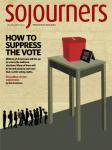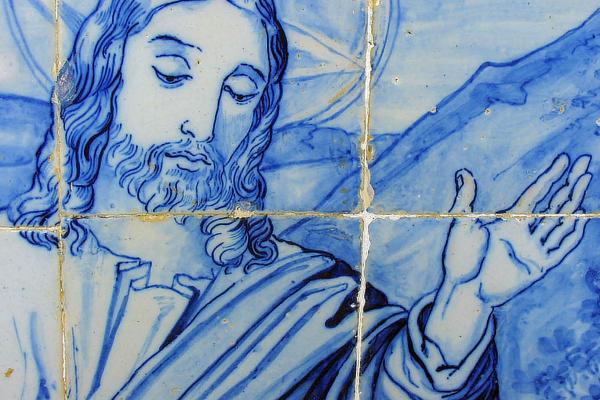WE LIVE IN A TIME of widespread violence. No country, no community, no person is untouched by violence. It is a complex problem stemming from our thought patterns and actions that are, in turn, shaped by various forces in our daily lives. Because violence is so complex, we often seek an easy answer—typically, naming a specific religion, culture, ethnicity, or nationality as a cause of the evil that perpetrates or stimulates violence.
But we all know that such scapegoating is another crime that only creates more violence. Each and every individual and community has good and bad, strength and weakness, merit and demerit. Just as no one is perfectly good, no one is perfectly evil. In her well-known book Eichmann in Jerusalem, philosopher and writer Hannah Arendt points out that evil is related to the lack of reflective thinking. “The longer one listened to [Eichmann],” writes Arendt, “the more obvious it became that his inability to speak was closely connected with an inability to think, namely, to think from the standpoint of someone else. No communication was possible with him, not because he lied but because he was surrounded by the most reliable of all safeguards against the words and presence of others, and hence against reality as such.”
For Arendt, to think reflectively means to be aware and to take into account the reality that one’s own life is always in relation to the lives of others. This is also what the biblical texts this month invite us to contemplate.
[Novemeber 2]
When Injustice is 'Normal'
Micah 3:5-12; Psalm 43; 1 Thessalonians 2:9-13; Matthew 23:1-12
In the third chapter of Micah, the prophet criticizes the false prophets (verses 5-8), then extends his criticism to those who are involved in governance, including rulers and priests who have exploited the innocent. God’s burning wrath and punitive destruction are reserved for those leaders who fail to care adequately for God’s people. Micah particularly admonishes the fact that their ugly, unjust, and degrading acts have become normal and accepted as the way things are done (verse 11).
In Matthew 23:1-12, Jesus also confronts some unjust leaders. Here, Jesus’ opponents are not the temple officials, but the Pharisees who work for them. Let’s be careful here with the temptation to an anti-Jewish reading of chapter 23. All the main characters of Matthew—including Jesus—were Jews. Matthew is critical of the Pharisees not because they were Jews, but because this particular group was neglecting the true values of the law—love, mercy, and justice. Jesus criticized their motives, saying that they taught Torah in a way to gain human favor and honor. While these religious leaders didn’t directly tell people that the Torah permits immoral activities, they were putting heavy burdens of religious approbation on those they taught (23:4).
In Matthew’s context, Jesus accuses the religious leaders of making a defense similar to what we hear from public leaders today, including some of our own religious leaders. While they do not directly oppress the poor and weak, they justify and normalize unjust practices that place heavy burdens on them, rather than trying to mitigate the burdens on people marginalized by society. They subtly use their expertise to secure their own privilege.
[ November 9 ]
How Shall We Wait?
Amos 5:18-24; Psalm 70; 1 Thessalonians 4:13-18; Matthew 25:1-13
The parable of the “10 virgins” in Matthew 25:1-13 is fairly transparent. The coming of the Human One is certain, but the time of arrival is not. The disciples must dutifully and expectantly prepare for a delay in the Human One’s return, just like those “wise virgins” who had sufficient oil in case of a delay in the bridegroom’s return.
For disciples today, what should we do as we wait? Lutheran biblical scholar Karl P. Donfried suggests a thematic link between this parable and Jesus’ aphorisms about “lighting a lamp” and letting it shine before others (Matthew 5:14-16), defining the light as “good works” (verse 16). Thus, Jesus’ plea for the constant vigil is also a call to good works. Not everyone who says to him “Lord, Lord,” will enter the kingdom of God, but only the one who does the will of God in heaven (7:21).
The prophet Amos describes the nature of good works. God is disgusted with worship that ignores the impoverished. Greed, idleness, a false sense of security, and a reliance on appeasing God with offerings are the forces that prevent us from caring for our neighbors and from doing good works. Only a constant search for justice and righteousness will enable us properly to discern God’s will, remain in relation with others, and do good works.
[ November 16 ]
Letting Go of Self-Sufficiency
Zephaniah 1:7, 12-18; Psalm 90:1-12; 1 Thessalonians 5:1-11; Matthew 25:14-30
Along with Luke’s parable of the rich young man (19:11-17), Matthew’s “parable of the talents” is one of the most difficult passages for many Christians because it appears different from the rest of Jesus’ teaching in which he criticizes the rich and privileged. This parable, instead, seems to justify a capitalistic mentality and to encourage one to use her “talent” as a type of a self-development program.
However, if we read the text in relation to the overall theme of Matthew’s gospel, the parable shows us something consistent with the rest of Jesus’ teaching. What the third servant lacks is reflective thinking. He didn’t make an effort for joyful kingdom participation, because he didn’t trust the master as much as his own ability to be part of the master’s plan. Instead, he locked himself into a closet of mistrust and doubt, while complaining and grinding his teeth.
Zephaniah describes something similar. The prophet warns against complacency and indifference, both of which prevent one from being open and vulnerable. The day of the Lord is at hand. It is for the poor in spirit, the humble, and the meek—those who willingly submit their self-sufficiency and self-interest to God. God expects us to delightfully join the kingdom by using the gifts God gave us. Yet, the greatest gift we receive from God—and may also return to the kingdom—is our self.
[ November 23 ]
Justice Nurtures Healing
Ezekiel 34:11-16, 20-24; Psalm 95:1-7a; Ephesians 1:15-23; Matthew 25:31-46
When Israel’s leaders turn away from the people, God steps in on the people’s behalf to feed them. For Ezekiel, justice means that God holds the oppressors accountable for persecuting their people. At the same time, God’s justice enables the oppressed to recover their basic needs as well as dignity and freedom. Justice and healing never stay separated.
The parable of the goats and sheep (Matthew 25: 31-46) is about practicing justice as we live in the not-yet-fully present kingdom of God. Jesus’ command is straightforward. Note how he identifies himself with “the least of these.” The acts of either kindness or neglect toward the “least of these” are acts directed at God. In other words, solidarity with the poor and disenfranchised is commensurate with solidarity with God. The more we open ourselves up to the disenfranchised, the more we experience communion with God.
The Matthean text highlights that, for Jesus, justice flows out of the irresistible compassion through which he feels our pain as if it were his own. Without a keen awareness of the interdependence of all the living beings, justice can easily turn into vengeance. Only when we remember that we are all part of one another will justice nurture healing.
[ November 30 ]
Advent of a New Era
Isaiah 64:1-9; Psalm 80:1-7, 17-19; 1 Corinthians 1:3-9; Mark 13:24-37
In Isaiah 64:1-9, the pain people bear, brought on by injustice, is obvious. The prophet appeals for divine intervention to heal the damage of their sin. However, God’s response is unclear. God hid because the people transgressed.
Fear and uncertainty continue in the Markan text. Jesus teaches his disciples about the great and terrible coming of the Human One whose time of arrival is uncertain. What should the disciples do in order to prepare for the end of the age? In the previous text (Mark 13:1-8), Jesus dismisses the desire to cling to the temple. He makes it clear that God is not in a temple made by humans. The desolating downfall of the temple, rather, will signal the end of the era, says Jesus. God will not be in the place where we look, where we worship, where we try to grasp. Instead, Jesus repeatedly says “Be alert” (13:23), “keep awake” (13:37), wait for God’s time in the uncertainty.
As we enter the season of Advent, we may want to ponder this uncertainty. The uncertainty of God’s time points to the reality of the incarnation as well. While the incarnation is a concrete event through which God’s self-communication with humanity enters history, it is also an event in which we anticipate and experience uncertainty and confusion. In the event of the incarnation, life and death, joy and sorrow, heaven and earth are inseparable. We ought to remember, however, that God did not come into an empty matrix, but into the web of relations in which human lives always search for love, belonging, and meaning out of confusion, turmoil, and uncertainty.
“Preaching the Word,” Sojourners’ online resource for sermon preparation and Bible study, is available at sojo.net/ptw.

Got something to say about what you're reading? We value your feedback!
